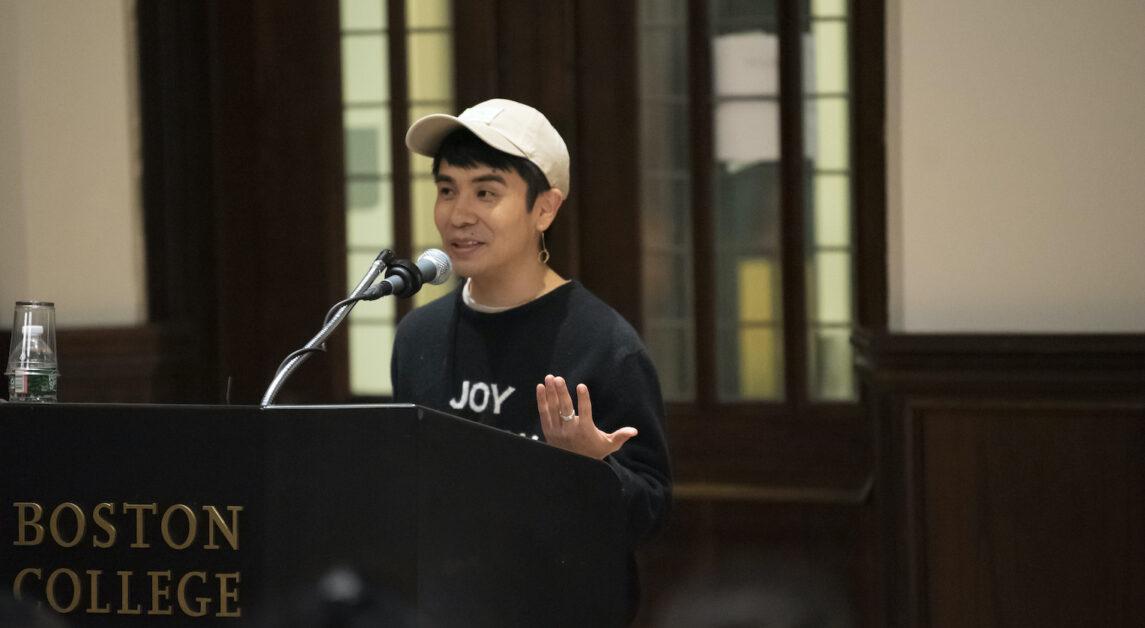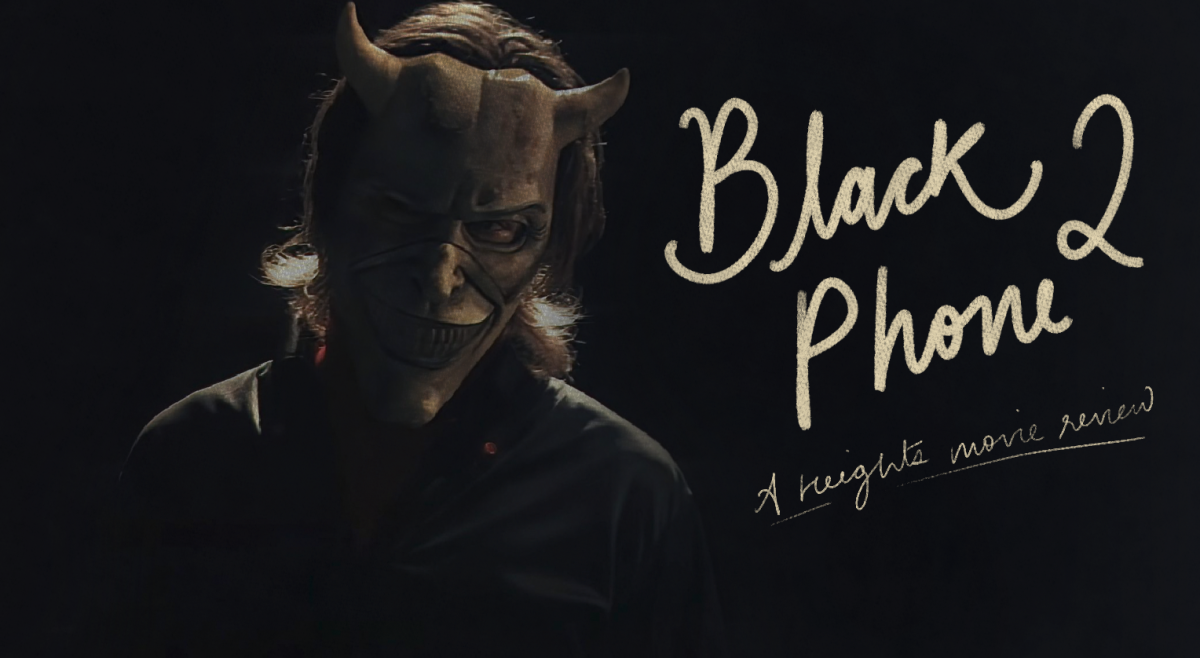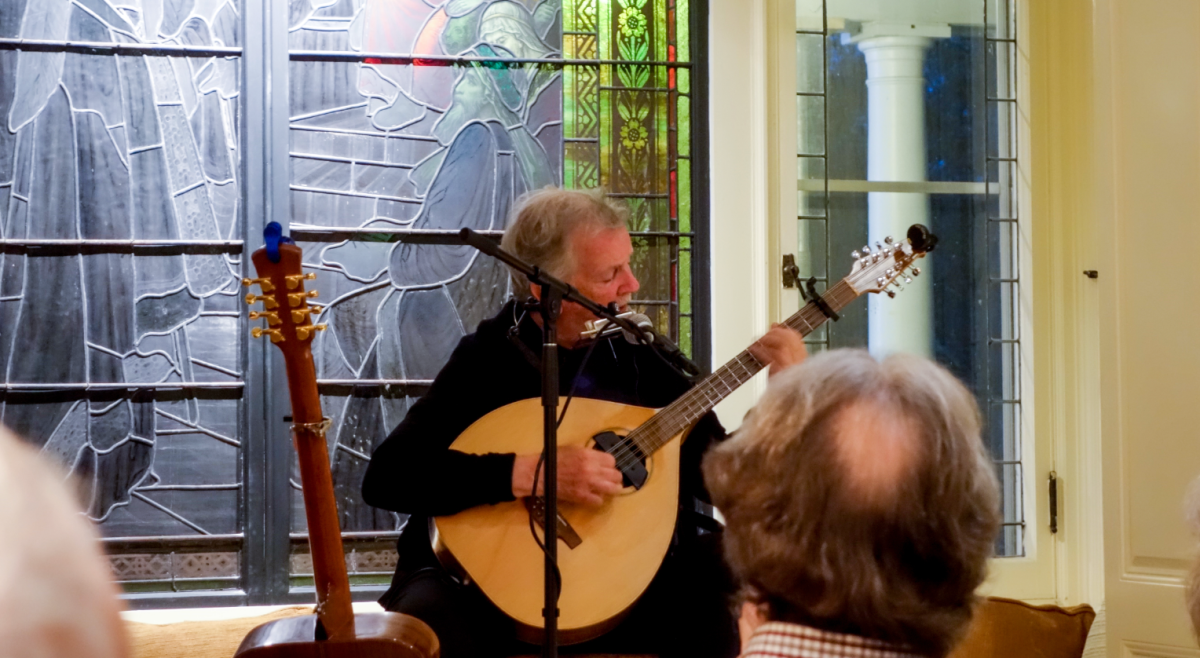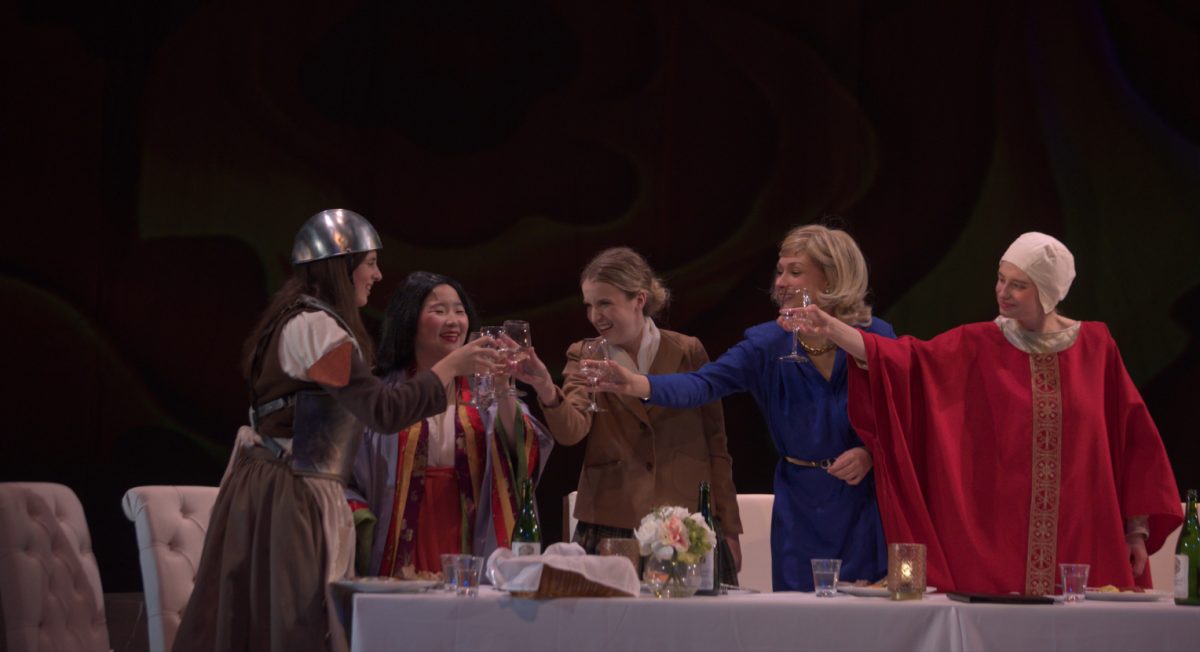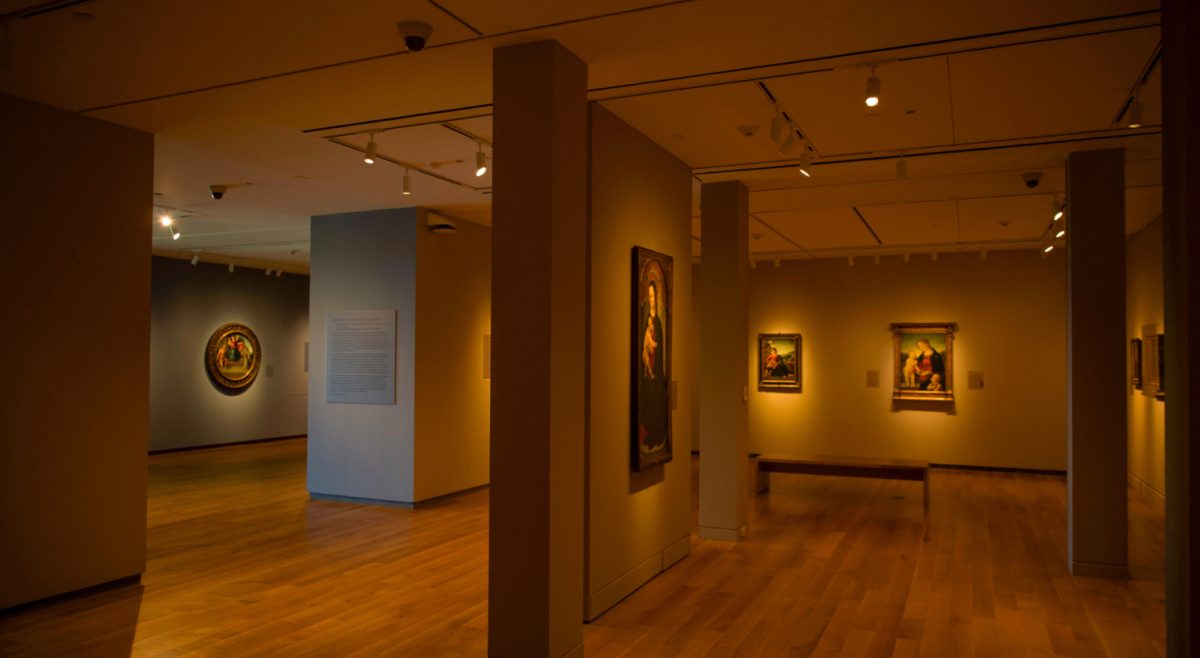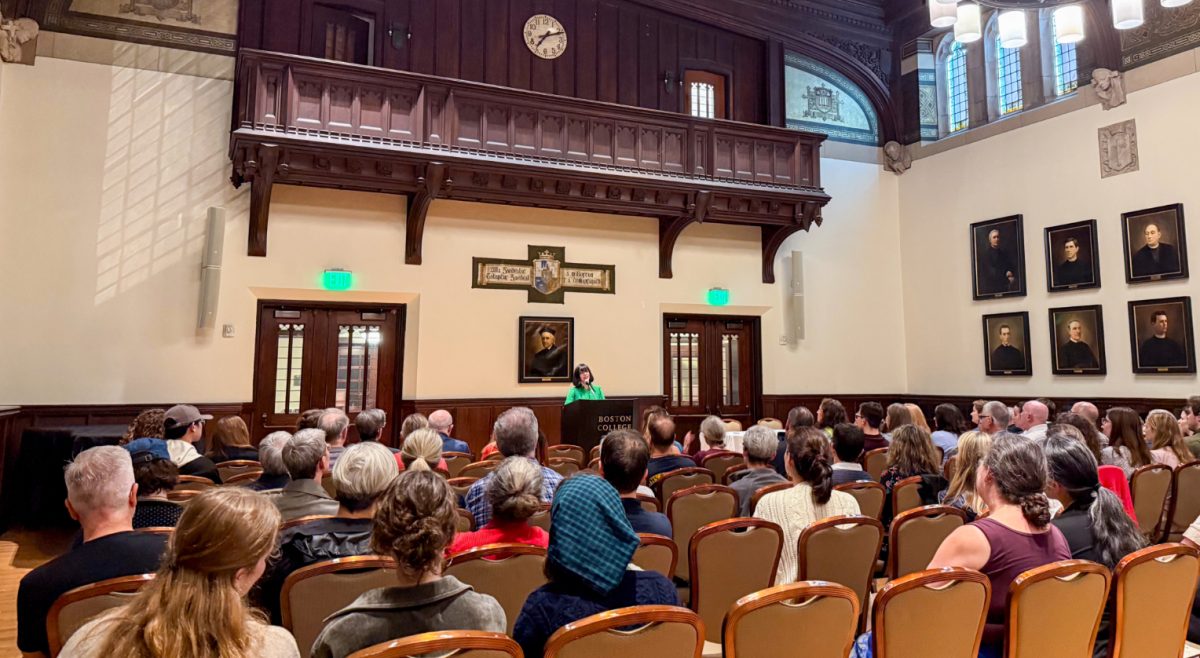Ocean Vuong compared the publishing of his work to sending a raft down a river: He has to be willing to let go and accept unknown results.
“If you’re on the raft, you can’t make anything,” he said. “You can’t live a life without destroying the raft. In other words, if you stay on the raft of your work, it traps you.”
The Lowell Humanities Series at Boston College welcomed Vuong, a recipient of a multitude of writing awards and a tenured professor at New York University, to speak about his latest book and poetry collection, Time is a Mother, on Wednesday night.
Vuong has received both a MacArthur “Genius Grant” and the prestigious T.S. Eliot Prize for his collection Night Sky With Exit Wounds. His 2019 book, On Earth We’re Briefly Gorgeous, was longlisted for a National Book Award.
Vuong began his series with a poetry reading. His soft voice transformed into a strong melodic tone, highlighting the meter and rhythm of his work as it washed over the packed audience in Gasson Hall. He read poems from his latest work, including “American Legend,” “Beautiful Short Loser,” and “Reasons for Staying.”
Vuong said his latest book of poetry demonstrates his goals to achieve humor, embrace New York, and be more open with language in his work. Vuong described the way in which he was able to achieve this level of writing and the influence of his childhood and home environment.
“I just didn’t have enough confidence in myself,” Vuong said. “It was difficult to build those registers and also to use humor. Growing up with the traumatized women who raised me, the joy was very natural, they laughed very easily. I think they knew what was on the other side of trauma and loss and pain. It formed their lives.”
The author’s work frequently explores his identity as a Vietnamese American and his relationship with his mother and grandmother, who immigrated from Vietnam when Vuong was 2 years old.
Vuong described that a turning point in his work was when he decided to stop writing every day. He said it was important for him to redefine what work means, rather than conforming to capitalist demands of daily production.
Kelly Mach, LSEHD ’25, said she knew she had to come to the event tonight as the daughter of a Vietnamese American immigrant. She said her sister admires his work. Mach had no previous interaction with Vuong’s work, and she was struck by his language and the impact it had on the audience.
“The entire time, I just thought he spoke very beautifully,” Mach said. “Every word has meaning to it, it has purpose to it.”
Vuong’s use of language is what drew Christy Pottroff, an assistant professor in the English department, to the event. Pottroff said she came because she began to read Vuong’s work during the pandemic, and it touched her.
“He writes really beautifully about grief and loss in ways that I found, just especially helpful during the last three years that have been kind of so full of grief and isolation. So I think in reading his books I kind of found like I felt less isolated,” Pottroff said.
Vuong told his audience that he uses literature to explore himself, and the world, but most importantly, the dream realm of the imagination. Literature allows endless exploration, he said.
“I could read a poem from sixth century Japan and feel absolute kinship, the loneliness, isolation with joy, within that, as I do now, in my contemporary life,” Vuong said. “To me, that’s real. It’s more real to me than often what the news does.”
Update 10/28/2022 6:24 P.M.: The article previously stated that both of Kelly Mach’s parents are Vietnamese American immigrants and has been corrected to clarify that one of her parents is a Vietnamese American immigrant.

